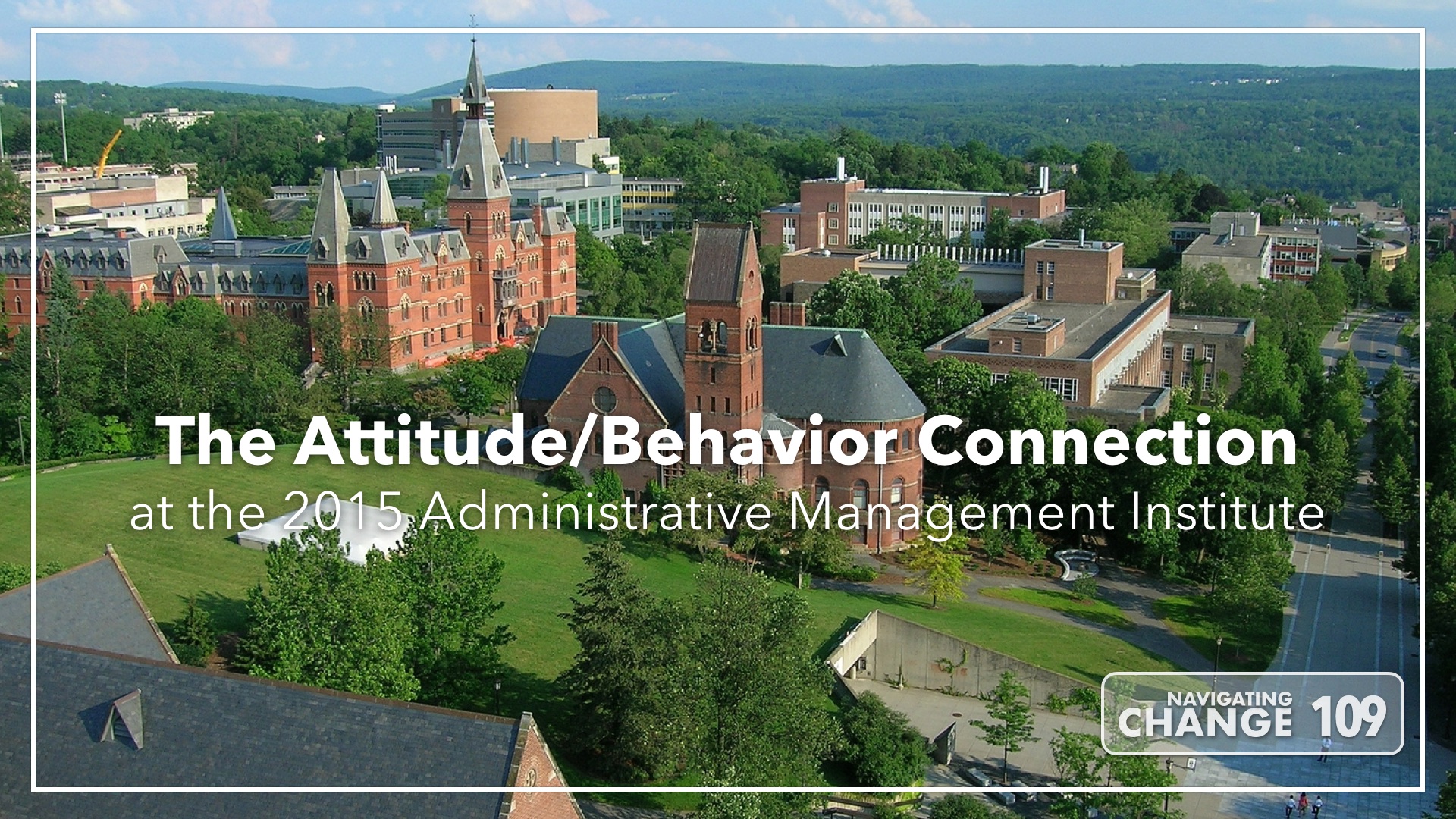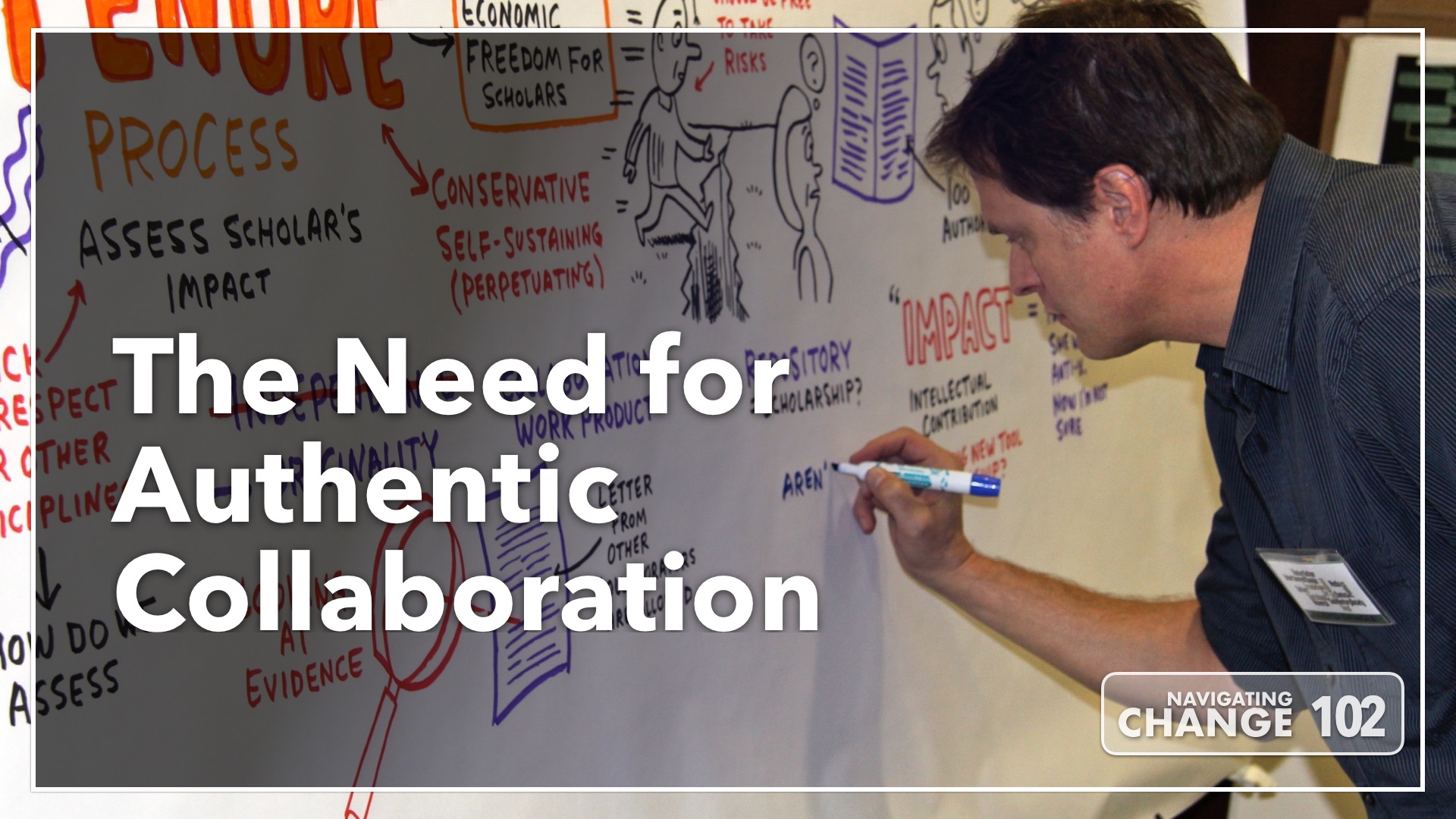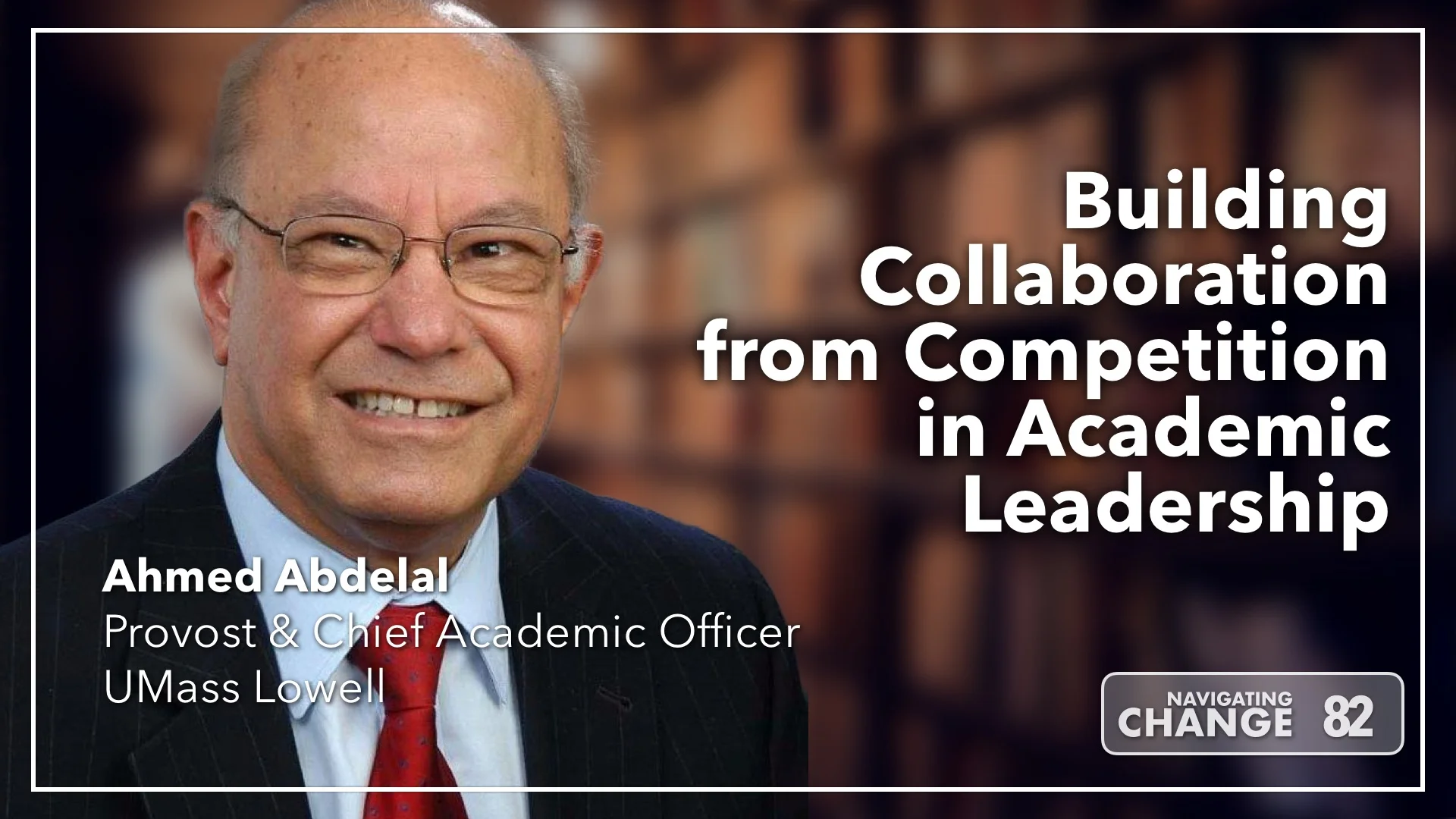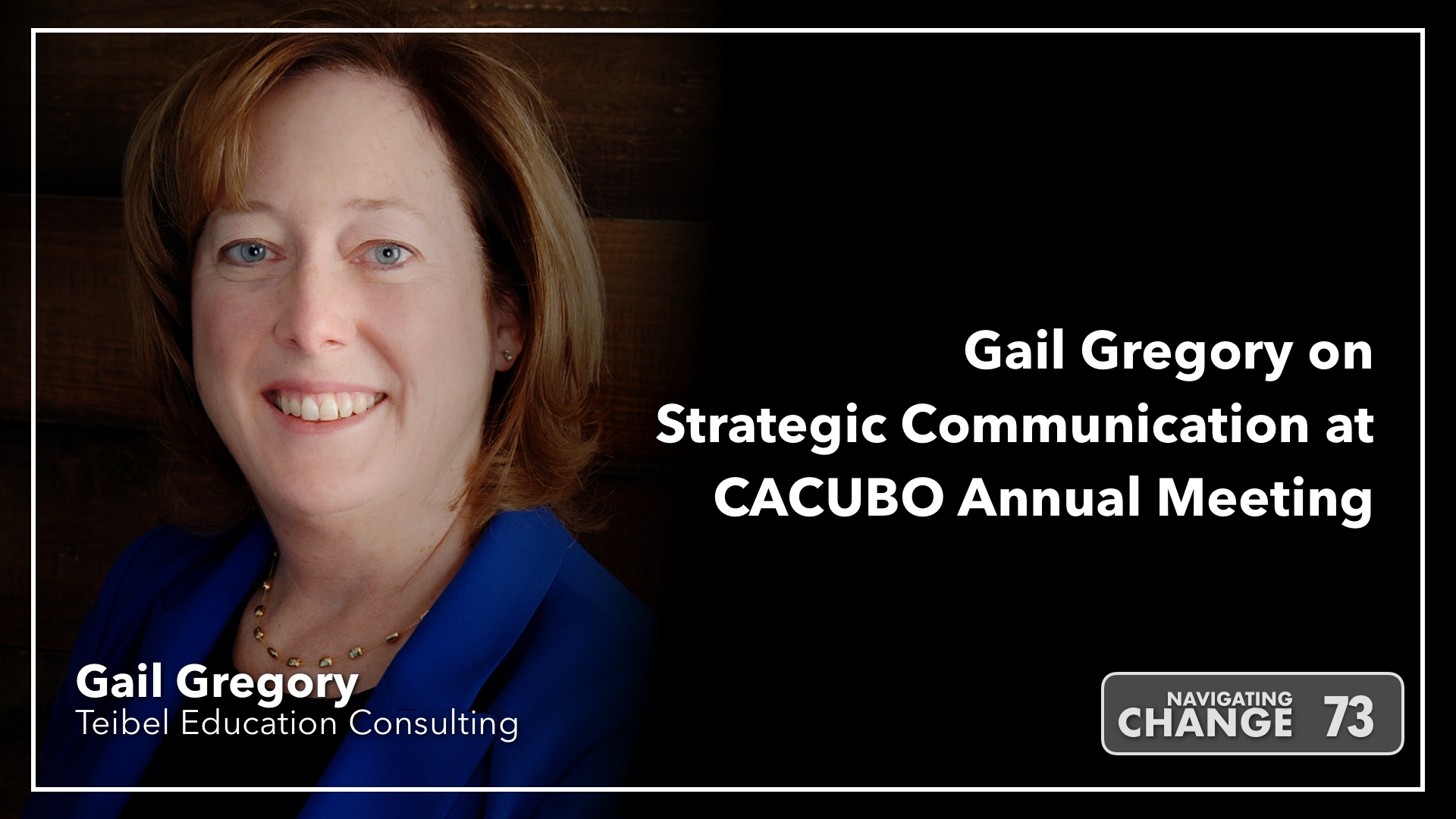
THE NAVIGATING CHANGE CATALOG IS HERE TO HELP YOU ENGAGE, PROVOKE, AND EDUCATE.
Navigating Change: The Podcast from Teibel Education

110: The Mentorship Mindset and Leveraging Hidden Resources with Nuno Couto
Nuno Couto lives and works from his RV. In his work as a consultant and project manager in higher education, his ultra-mobile command center has become a central component to leading change through his firm, Optimal Partners.

109: The Attitude/Behavior Connection at the 2015 Administrative Management Institute
If you're a line manager, you might live in a world in which you believe that “decisions” are made above your pay grade. This week on the show, we dispel that myth and share how your behavior in the decision making process can affect the attitude of your team, your peers, and your leaders across the institution.

106: Creativity at a Crossroads: the CAO/CBO Partnership at University of Colorado
Faced with declines in state funding leading the nation, University of Colorado has been forced to develop innovative solutions that allow the institution to maintain its position as a leading research institution, while maintaining affordability for its students. Doing so has required a best in class partnership between Senior Vice Chancellor and CFO, Kelly Fox, and Provost and Executive Vice Chancellor for Academic Affairs, Russell Moore.

103: Empowering Teams to Take Initiative
How do you lead from behind and mentor others to step forward? This week, Howard Teibel and Andrew Menke discuss strategies behind empowering teams to take initiative.

102: The Need for Authentic Collaboration
This week on the show, Howard Teibel and Pete Wright offer suggestions and observations to help institutions break down barriers and move toward significant and authentic shared governance across the institution.

101: The Danger of Thinking in Projects
This week, Howard Teibel and Pete Wright discuss the importance of making the leap from “project thinking” to framing change around transformation, dodging the stagnation that comes with the return to business as usual, once change projects close.


85: Loki's Wager — Building Trust through Difficult Negotiations
This week on Navigating Change, Howard Teibel and Pete Wright discuss Loki’s Wager, and share insight that can help to adjust our natural assumptions around conflict, trust, and the ground rules required for an effective problem-solving and decision-making engine at the negotiating table.

82: UMass Lowell Provost Ahmed Abdelal on Building Collaboration from Competition in Academic Leadership
This week we welcome Dr. Ahmed Abdelal, Provost and Chief Academic Officer at UMass Lowell. His work provides a framework for the structure and culture that makes for a collaborative leadership model that transcends competition and gridlock.



79: How do you Transition from Sage to Guide?
This week on the show, Howard Teibel and Pete Wright discuss the key tenets of process consultation and offer guidance for asking tough questions of our own assumptions in our work to drive change in our institutions.

75: Building Outstanding Consulting Partnerships
This week on Navigating Change, Howard Teibel shares his experience in building outstanding relationships with external consultants as a consultant himself. From setting clear boundaries for communication, to taking on key strategic responsibilities, Howard’s insights offer a keen view into what makes a consultative partnership valuable in achieving the strategic goals of the institution.

73: Gail Gregory on Strategic Communication at CACUBO Annual Meeting
Gail Gregory will be on-site at the conference delivering her presentation, “Communicating Financial Information Effectively.” This week on the show, Gail joins Pete Wright to share her perspective on strategic communication and the evolving role and responsibility of the business officer, with a great review of the big events coming up this weekend. Listen in!

65: Amir Rahnamay-Azar on Collaborative Leadership at Carnegie Mellon
Seasoned business officer Amir Rahnamay-Azar joins us on the show this week to share his leadership practices as a new member of the Carnegie Mellon University leadership team. Just celebrating his 1-year anniversary, Amir has developed a strategic plan for his division, illuminating the objectives shared by the institution and how his operation contributes to achieving them. His process for encouraging buy-in and developing a collaborative leadership relationship with the provost is a true highlight of his work, and we encourage you to listen in as Howard Teibel and Pete Wright learn how Amir is shepherding the entrepreneurial into his administrative office.

60: Conflict and Collaboration
The road to collaboration is paved with complexity. We forget that sitting on teams, driving toward improved processes and structures, fantastic new programs and initiatives, are real people with real emotional ties to the work being done. This can lead to unconscious conflict that impedes growth and progress. This week on Navigating Change, Howard Teibel and Pete Wright discuss the opportunities and pitfalls inherent in building strong teams and offer suggestions for cultivating a progressive and productive team environment.



47: "With Clarity for All" — Strategic Collaboration in the Institution
In “With Clarity for All,” Gail Gregory and Howard Teibel share the results of their work with leaders from Emory University, Caldwell College, and Carnegie Mellon University as they work to bridge three key leadership groups: faculty, administration, and the board.








